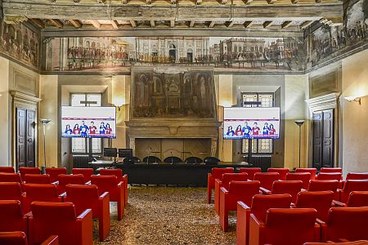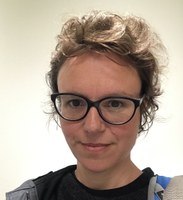The Value of "Things" in Stalin’s USSR: Thieves, their Motives and their Repression
"Socialist property" after World War II and consequences in the late-Stalin political culture and criminal system

-
Date: 09 MAY 2023 from 17:30 to 19:00
-
Event location: Institute of Advanced Studies - Sala Rossa, Palazzo Marchesini, Via Marsala, 26 - Bologna - In presence and online event
-
Type: Lectures
“Socialist property” existed as a juridical category in the Soviet Union. Under Stalin, a new property regime was conceived, establishing the principle of protection of “socialist property”, and redefining the value of things and their usages. A spectrum of laws was designed to fight any infringement on this common (State or collective) property, resulting in the criminalization of many activities and in numerous condemnations to the labor camps. After World War II, new laws against theft were adopted and massively implemented in a context of dire shortages and heavy reconstruction. Economic and social tensions were at their apex, illegal activities were spreading rapidly, and the government and the Party were at pain in their endeavor to discipline society. The documents of the organs of the Communist Party and law enforcement agencies reveal the representations and principles held by various actors in position of authority. They also contain interrogations and court transcripts, as well as letters of convicted thieves (appeals) that shed light on the way they made sense of their actions, and of their punishment. Finally, references to early modern history underscore the oddities of the late-Stalin criminal law and the vitality of Soviet citizens in trying to redefine the relationships between the Party-State and society, using tools of patronage, clientelism and corruption for fashioning a peculiar late-Stalin political culture and criminal system.

Speaker
ISA Visiting Fellow - Juliette Cadiot
Ecole des Hautes Etudes en Sciences Sociales (EHESS), France
Do you want to attend this lecture?
-
Sala Rossa, Palazzo Marchesini, Via Marsala, 26 - Bologna
If you prefer to attend this lecture in presence, you should write to segreteria.isa@unibo.it within May 9, 12 p.m. and book your place. The places will be assigned on “first come first served” basis.
PhD students and researchers who are interested may request an attendance certificate.